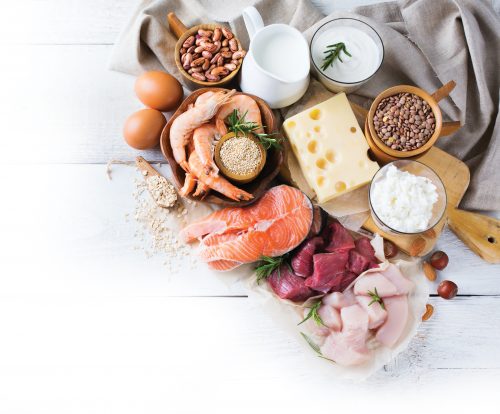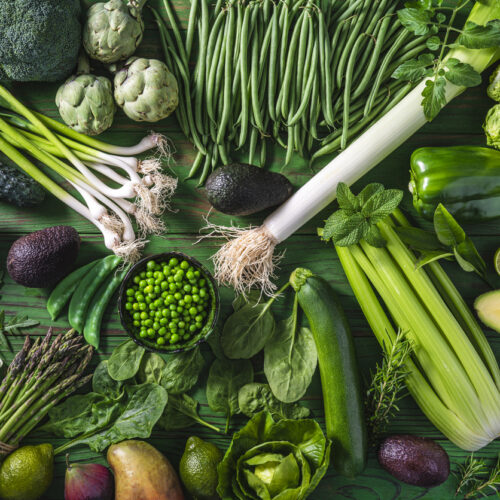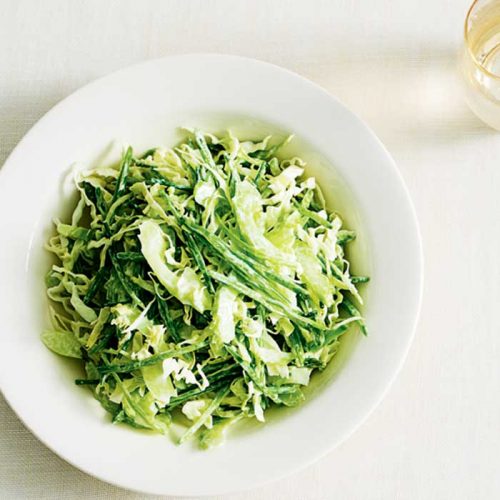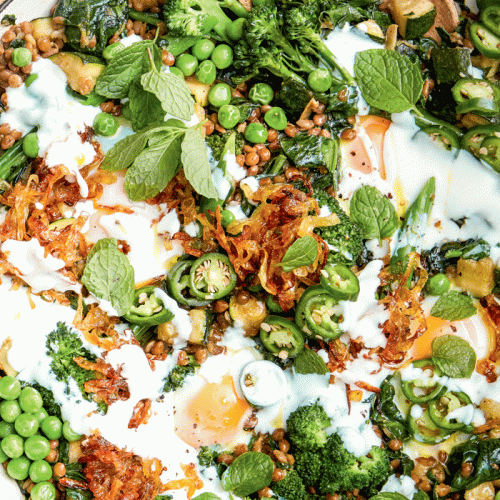
Deficiencies in key nutrients can affect mental wellness and cognition. Dietitian Katrina Pace shares what to eat to nourish your body and mind.
We’ve been told time and time again that eating a nutritious, varied diet is great for our physical health. Now research has confirmed this also applies to our mental wellbeing. Not only that, but we’re learning how nutrient deficiencies and eating a limited range of food can put us at increased risk of depression and other mental illnesses.
Nutrient deficiencies can affect how our body makes hormones and neurotransmitters (chemicals that transmit information between brain cells) that can determine our resilience, sleep and mood. Deficiencies of certain vitamins and minerals have been linked to the start of mental health problems and how long they affect us for.
Making food choices that don’t meet nutritional requirements of several key vitamins and minerals is something common in people both before and during periods of depression. It’s a catch-22 situation, where not getting enough of the key nutrients leads to a borderline deficiency, which heralds the onset of depression, which leads to making poor meal choices, which leads to not getting enough of the key nutrients, which leads to a borderline deficiency, which lengthens the duration of depression (and around it goes).
Here are eight of the key nutrients that can affect your mood
1. Vitamin B12 is used by the body to help keep our nerves healthy and make DNA. As B12 is found mainly in animal products, people eating a vegan or vegetarian diet are most at risk of deficiency. Symptoms of vitamin B12 deficiency include memory loss or mood changes, loss of feeling in hands and feet, visual disturbances or changes in bowel or bladder control. A simple blood test from your GP will test your B12 levels, and an oral supplement or injection may be prescribed if your levels are low. The best food sources of B12 are meat, chicken, dairy, eggs and fortified vegan products
2. Iron is found in many of the proteins that carry oxygen around the body. As oxygen is needed for energy production, if we don’t have enough of these proteins that carry oxygen then we suffer with symptoms of low energy. Symptoms of iron deficiency include fatigue, shortness of breath, headaches and anxiety. Both iron deficiency and iron deficiency anaemia are relatively common conditions, especially in children who are growing fast, girls during puberty and women. Foods containing iron include red meat, liver, fish, eggs, wholegrains, pulses, beans, dried apricots, prunes and fortified cereals.
3. Omega-3 fatty acids can help cells in the body work more effectively, and therefore improve the function of neurotransmitters. Omega-3s also reduce inflammation. As depression is now considered an inflammatory disorder, having enough omega-3 in our diet may help. Lower blood levels of omega-3s have been found in people with depression, and higher levels of omega-3 have been found in people who had less severe depression. Research suggests that 1g of long chain omega-3 fatty acids is needed each day to help with mental health conditions. Long chain omega-3s are found in oily fish such as salmon, fresh tuna and herrings as well as cod liver and other oil supplements.
4. Magnesium can help to reduce some stress hormones. If you’re deficient in magnesium and have ongoing stress, the body cannot modify the stress response as effectively. Having low levels of magnesium in the diet has also been associated with depression. Deficiency symptoms include irritability and muscle tremors. People with cardiovascular disease and diabetes may be at greater risk of having low magnesium. Magnesium can be found in beans, nuts, green leafy vegetables, brown rice, avocado, broccoli, salmon and tuna.
5. Zinc is used by the body in many roles, including how we deal with depression. Stress is known to reduce the amount of zinc in the body, and people who are depressed have been found to have less zinc in their blood. Symptoms of low zinc include getting more infections, coughs and colds, diarrhoea and reduced appetite. Unfortunately, blood tests for zinc aren’t reliable, as the amount of zinc in your blood changes depending on time of day and foods consumed. Foods highest in zinc include seafood, meat, chicken, wheatgerm and pumpkin seeds.
6. Folate plays a crucial role in creating substances that can be used for the production of neurotransmitters, including mood and sleep stabiliser serotonin. How well folate works can be affected not only by the amount of folate in the diet, but by a genetic mutation that controls how folate is used. This genetic ‘oopsie’ has been linked to mental health conditions and cognitive decline. Symptoms of folate deficiency (called megaloblastic anaemia) include shortness of breath, numbness in the hands and feet, pale skin and muscle weakness. Dietary sources of folate are dark-green leafy veges such as spinach, kale and silver beet as well as oranges, beans and lentils.
7. Tryptophan is an essential amino acid (a building block of protein), which means it must be eaten because the body can’t make it. Tryptophan in the body is broken down to amino acid 5-HTP and converted to serotonin. More serotonin – more happy! Research now suggests that tryptophan produced by microbes in our gut is key in this pathway. Good sources of tryptophan in our diet are milk, dairy, dates, oats, eggs, chickpeas, pumpkin seeds and peanuts.
8. Antioxidants are nutritional elements that protect the body from oxidative stress and low fruit and vegetable intake is often found to be linked to low moods. Among others, important antioxidants are vitamins A, C and E, carotenoids and flavonoids. Supplementation with carotenoids has been found to reduce anxiety and cortisol (stress hormone) levels. As antioxidants are found in fruit and veges the best thing to do is make sure you’re eating your 5+ a day and choosing different-coloured veges.
A day on a plate …
Breakfast
Yoghurt and bircher muesli with berries, pumpkin seeds and dates
Provides tryptophan, zinc, magnesium and antioxidants
Lunch
Wholegrain bread or crackers with tinned salmon and a salad with spinach, avocado, grated carrot and a lemon juice dressing
Provides omega-3, folate, zinc, magnesium, antioxidants and B12
Dinner
Spanish omelette with cheese, green veges and mushrooms with a side of broccoli and brown rice
Provides iron, tryptophan, folate, zinc, magnesium, antioxidants and B12
Snacks
Mixed nuts and seeds, roasted chickpeas and fresh fruit
Provide antioxidants, magnesium, iron and tryptophan
Helping you to help yourself
If you’re feeling anxious or depressed, making healthy food choices can be difficult, so:
- Try keeping a stock of frozen healthy meals in the freezer
- Make sure you have a supply of the basics in the pantry
- Have an emergency meal plan (and all the ingredients to hand) to help reduce the stress of what to feed the family, or make it easier for someone else to take over cooking at difficult times
- Set an alarm on your phone to remind you to eat
- Work with a dietitian or psychologist, if you find your mood affects your eating, to come up with a plan when you’re well, and for when you’re not so well.
For more on food and mood read these:
www.healthyfood.com










